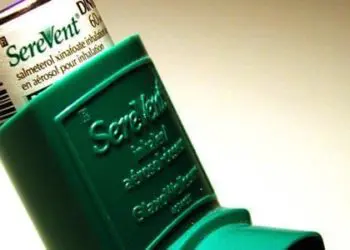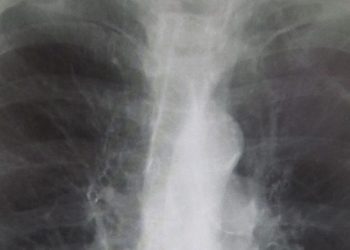Soy isoflavone supplement yields no improvement in poorly controlled asthma
1. In this randomized controlled trial of individuals with poorly controlled asthma, soy isoflavone supplementation was not associated with either symptomatic improvement or improvements in lung function when compared to placebo.
2. There was no significant difference in adverse events in the soy isoflavone supplement and placebo groups.
Evidence Rating Level: 1 (Excellent)
Study Rundown: Prior studies have suggested an association between soy isoflavone supplementation and asthma severity via the modulation of the eosinophil leukotriene C4 synthesis pathway, but have not had sufficient power to clearly characterize this association. The authors of this study therefore conducted a randomized controlled trial on individuals with poorly controlled asthma assessing soy isoflavone supplementation versus placebo. The authors found that soy isoflavone supplementation was not associated with either symptomatic improvement or improvements in lung function when compared to placebo. Of the few serious adverse events reported, there was no significant difference in incidence between the soy isoflavone supplement group and the placebo group.
Limitations of this study included its limited intervention period of 6-months, which may have been inadequate to capture potential long-term benefits of soy isoflavone supplementation. Additionally, the individuals included in this study largely did not demonstrate evidence of inflammation, either systemic of airway. The effect of soy isoflavone supplementation on this subset of asthma patients is therefore unknown. At this time, however, there is no clear evidence supporting the use of soy isoflavone supplementation in poorly controlled asthma.
Click to read the study, published today in JAMA
Relevant Reading: Diet and Asthma
In-Depth [randomized controlled trial]: This study involved 19 sites in a randomized controlled trial and randomized individuals in a 1:1 distribution to receive either a soy isoflavone supplement (n=182) or placebo (n=185) twice daily for 6 months. Included individuals were 12 years of age or older and demonstrated poorly controlled asthma as measured by one of a number of measures, including pulmonary function testing while taking a controller medication. The primary outcome of FEV1 was not significantly different between the two groups after 24 weeks (change of 0.03 L, 95%CI -0.01 to 0.08 L in the placebo group vs. change of -0.001 L, 95%CI -0.07 to 0.07 L in the soy isoflavone group). There was additionally no difference between the two groups in the Marks Asthma Quality of Life Questionnaire (-4.30, 95%CI -6.07 to -2.54 in the placebo group vs. -2.99, 95%CI -4.37 to -1.24 in the soy isoflavone group) or Asthma Control Test (ACT) scores (1.98, 95%CI 1.42 to 2.54 in the placebo group vs. 2.20, 95%CI 1.53 to 2.87 in the soy isoflavone group). There was no significant difference in adverse events between the soy isoflavone supplement group (n=14) and placebo group (n=12).
Image: PD
©2015 2 Minute Medicine, Inc. All rights reserved. No works may be reproduced without expressed written consent from 2 Minute Medicine, Inc. Inquire about licensing here. No article should be construed as medical advice and is not intended as such by the authors or by 2 Minute Medicine, Inc.





![Statin therapy does not prevent osteoporotic fractures [JUPITER trial]](https://www.2minutemedicine.com/wp-content/uploads/2014/12/osteoporosis-e1417474828821-75x75.jpg)

